Region Nine Development Commission, in partnership with the Agricultural Utilization Research Institute, the Minnesota Department of Agriculture, and FoodOps, is conducting a survey to identify food and beverage manufacturing trends to support growth in these and related sectors. The goal of the survey is to help create an increased economic impact for the entire state.
The project is in response by the AURI to an apparent lack of capacity or access to affordable, right-sized manufacturing options in Minnesota for growing, ready-to-scale small food and beverage businesses. Failure to address these infrastructure needs places the state at risk of losing not only the economic benefit these businesses provide today such as jobs, revenue, capital, and agricultural product utilization, but also minimizes the economic potential of attracting new food and beverage businesses to the state.
Survey Participants:
The intended audience of this survey are those in the food and beverage manufacturing sectors within the state of Minnesota, regardless of annual sales volume, that is defined by the standard industrial classifications system, Food and Kindred Products used by the United States Department of Labor.
Anticipated Project Benefits to Minnesota:
• Identification of the real and perceived strengths, weaknesses, opportunities, and threats faced by food and beverage manufacturers and related sectors.
• Potential increases in employment and income in all sectors tied to the food and beverage manufacturing sectors, which may result in economic growth for the state.
• Ability to gain resilience in all related sectors by understanding what opportunities and threats exist, how those challenges could be mitigated, and opportunities pursued.
• Identification of opportunities for domestic and international investment benefits in Minnesota by adding the state’s economic growth and resilience.
• Food and beverage manufacturers of all sizes benefit from a study of their environment and new data resources and guides.
• Minnesota will benefit by identifying ways to potentially grow the food and beverage manufacturing sector, which may result in economic growth in multiple related industrial sectors.
• Creation of an assessment report to support the expansion of mid-sized companies with sales from $20,000 to $3 million as well as related industrial sectors.
• Provide assistance and insight to the state legislature in crafting and refining policies which offer the right amount of regulation and support to maintain level opportunities for all.
Access the Survey:
The survey is currently open and will be available to participants until February 5, 2020. To participate in the survey, please visit https://www.rndc.org/food-and-beverage-manufacturing-assessment/
For specific questions regarding the survey or study, please contact Shawn Schloesser at shawn@rndc.org or 507.389.8886.

